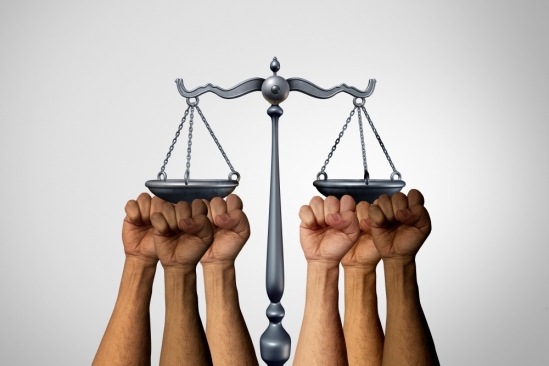Much to my dismay, I often find the most visible and vociferous voices advocating for justice on social media are inauthentic and milquetoast voices. These folks are primarily interested in people clapping for them and amassing the most “likes,” “loves,” and retweets on social media. While they’re known for employing fiery, robust rhetoric, they refuse to speak truth to power to racists and White supremacists, including to those who employ them. Many of these disingenuous justice activists pose as radicals but are unwilling to embrace and engage in radical praxis and politics.
To embrace and engage in radical praxis and politics necessitates alacrity for risking something valuable for the cause of justice, including losing one’s employment. If you’re unwilling to risk losing your job or career for the cause of justice, then your justice activism is a farce—it’s ultimately about self-promotion, self-aggrandizement.
Those of us truly committed to authentic justice activism and radical praxis and politics need to be just as visible and vociferous in our critique of their ersatz activism. This phony justice activism threatens true justice activism, fooling many that it’s real and needs replicating. As someone who has taught English at the middle and high school and university levels for over twenty years, I love the power of words, the gift of language. To realize radical transformation in America, to see racial, social, economic, educational justice materialize, we need more genuine radical activism, activism centering transformative actions—not self-indulgent, attention-seeking tweets and Facebook posts.
Real justice activists must expose those posing as justice activists on social media by asking them some important questions: (1) What have you risked for the cause of justice?, (2) What have you lost for the cause of justice?, and (3) What transformative actions have you taken and are taking for the cause of justice? These questions will unsettle and unnerve phonies, but, more importantly, these queries will unmask their vacuous messages.
Authenticity needs defending. When it’s not, truth becomes distorted, and we fall down a slippery slope of normalizing deceit.
As an increasing number of people are engaging in false justice activism, we must recognize they are enemies of justice. Although fake justice activists aren’t in the same camp as racists and White supremacists, they hinder meaningful progress in similar ways. The next time, therefore, you see a phony posing as a justice activist, expose him or her.
Call out those working in the interest of racism and White supremacy—even when they pretend their self-promoting social media messages further the cause of justice.
Dr. Antonio Maurice Daniels
University of Wisconsin-Madison

